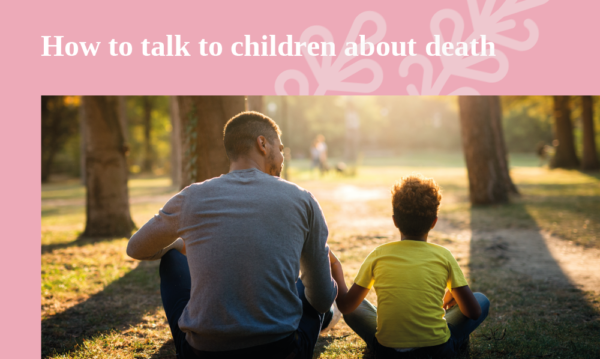Parents often have to deal with a difficult issue: how they will approach and answer their children’s inevitable question about death. After all, death is also part of life, and pretty much all children have seen withered flowers, insects on their backs, a dead canary, or a killed cat in the street.
Hiding, lying, or distorting stories, such as “He’s gone on a long journey,” “He slept forever,” “God wanted him and took him to him,” is useless. Children can sense what is going on; something that remains hidden, secret, may be more frightening than something obvious. When they realize that they are hiding the truth from them, they gradually lose confidence in themselves and their perceptual capacity or parents.
Therefore, we are called upon to tell the truth in a way that goes hand in hand with the age, ability, and pace of perception and understanding of each child, whether death by accident, illness, old age, or even suicide. Let’s talk clearly about what happened, but pay attention to the images that the child can shape in his mind. Let’s explain the circumstances of the accident or the causes of the illness.
As children may feel responsible for this loss, it is crucial to stress and reiterate that they are not responsible for anything and that they have the right to feel all emotions.
Let’s hear it and ask questions to understand what he thinks and how he feels. Let’s accept his feelings, his anger, or his grief. We can ask what he misses, what made him happy, or what he will remember from the person who died. Let us try to avoid excessive reassurances, such as “Mom will not die, only very old people die.” The child knows that someone can die by accident or illness.
Finally, let us not be afraid to cry or show our grief and pain in front of the children for this loss. If we hide to cry, they may conclude that feelings’ expression is forbidden or makes you weak. The pain is in life, and the children will see us overcome it, recuperate and recover.


